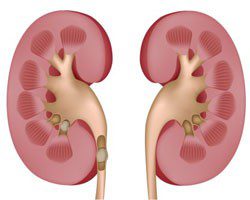
5 Risks You Face When Carrying Excess Weight
- Dr. P T Ponmani
- No Comments

Excess weight or overweight is the most common health problem faced by many people sans sex. This condition may severely affect the human body in general. Most issues start gradually when a person begins to gain more fat. The risk of excess weight and its complications increases as the person gains more weight, indicating the necessity to take immediate steps to prevent unnecessary health complications.
Obesity, a highly preventable health problem, underscores the importance of lifestyle changes. By ensuring an optimum balance between calories consumed and calories used by the body, individuals can make significant strides in managing their health and preventing obesity-related health issues.
Understanding how obesity affects the body is crucial in proactive health management. Obesity affects overall health in many ways. Such as the physical appearance of having extra body fat, putting additional pressure on the bones and joints, or silent but gradual chemical changes in the blood that may increase the risk for diabetes, heart disease and stroke.
Still, a few effects are unclear or poorly understood, like the increased risk of certain cancers with obesity. Excess weight also increases the risk of premature death from all the complications.
Table of Contents
ToggleRisks of Obesity
- Type 2 diabetes
- High blood pressure
- Heart disease
- Metabolic syndrome
- Fatty liver diseases
- Some cancers
- Joint pains
- Kidney disease
- Pregnancy problems
- Fertility problems
- Sexual function problems
- Mental health problems
Direct effects
- Asthma.
- Sleep apnea.
- Hypoventilation syndrome.
- Osteoarthritis.
- Back pain.
- Gout.
Indirect effects
- Alzheimer’s disease and dementia.
- Female infertility and pregnancy complications.
- Depression and mood disorders.
- Certain cancers.
1. Excess weight and depression
Research has found that obese people are more prone to the risk of developing depression over time compared with people of average weight due to alterations in brain chemistry and function in response to stress.
The psychological factor of carrying excess weight can lower a person’s self-esteem and confidence, thus leading to depressive episodes. Irregular eating habits and a variety of eating disorders, adding to the physical discomfort of being heavy, are known to trigger further depression.
Elevated levels of cortisol, the stress hormone, are known to alter certain chemical substances in fat cells that lead to fat accumulation, especially in the abdomen. People who are depressed do not follow a proper eating schedule or exercise regularly, thus making them more prone to gaining weight. Certain medicines used to treat depression can also cause weight gain.
2. Excess weight and heart disease
the most common problems seen in people who carry excess weight include high blood pressure, high cholesterol levels, and sugar and fats in the blood. They can lead to various health problems, such as cardiovascular diseases, including coronary artery disease, congestive heart failure, heart attack and stroke.
Although the harmful effects of excess weight on blood pressure and cholesterol levels usually increase the risk of heart disease, even the smallest amount of excess weight can increase the tendency to heart disease.
3. Excess weight and diabetes
Excessive weight or obesity is so closely linked to diabetes. The risk increases by twenty per cent for every additional point a person gains on the BMI scale. It also diminishes with weight loss.
A high blood sugar level, the typical symptom of diabetes, is one of the defining triads of the metabolic syndrome. When proper care is not given for treating diabetes, it may lead to severe health problems, such as renal failure, blindness, or amputation of a foot or leg.
4. Excessive weight and Metabolic syndrome
Metabolism is the active process of converting the food consumed or taken calories into energy fuel for bodily functions. When the body produces more calories than needed by the body, it transforms the extra calories into lipids and stores them as body fat in the adipose tissue, when the body runs out of places to store the extra lipids, the fat cells try to accommodate them and become enlarged—such enlarged lipid calls certain chemical substances and hormones that produce an inflammatory response.
Chronic inflammatory response leads to insulin resistance, where the body can no longer use insulin to lower blood glucose and blood lipid levels efficiently. High blood sugar and blood lipids also lead to high blood pressure. The combined risk factors are known as the metabolic syndrome.
They are considered a syndrome because they reinforce each other and cause further weight gain, making it harder to lose. This syndrome also increases the risk of heart disease, stroke, and diabetes.
5. Excess weight and cancer
Obesity ranks as the second leading cause of cancer death, the first being smoking.
In both males and females, a high Body Mass Index was associated with an increased risk of death from cancer of the oesophagus, colon and rectum, liver, gallbladder, pancreas, or kidney.
In men, excess weight also increases the risk of death due to stomach or prostatic cancer.
In women, deaths were reported chiefly from cancers of the breast, uterus, cervix, or ovary.
Other diseases
- Fatty liver disease. Excess fat circulating in the blood is sent to the liver, which filters the blood. As the liver begins to store excessive fat, it can lead to chronic inflammation of liver cells and cause long-term liver damage.
- Renal disease. Elevated blood pressure, elevated blood sugar and liver disease are the most common contributors to chronic renal disease.
- Gallstones. Raised blood cholesterol levels can lead to the accumulation of cholesterol and bile in the gallbladder, leading to cholesterol gallstones and potential gallbladder diseases.
Reduction of life expectancy
Being overweight can make just getting around in old age a challenging experience. Compared to people with average weight, people carrying extra weight might have difficulty moving around. As excess weight plays a crucial role in many standard and deadly diseases, being obese can cut years off a person’s lifespan.
How to lower your risk
- Losing as little weight as possible can lower the risk for many health conditions, such as heart disease, hypertension and hyperglycemia.
- A well-planned combination of diet and exercise can help a person lose weight slowly if appropriately executed. There is no need to make sudden and drastic changes to a person’s lifestyle. The main goal is to be consistent in the decision and to continue making healthy choices.
- At least 150 minutes a week, along with moderate aerobic activity for exercise, can be a starter. This can also include a 30-minute brisk walk daily. Once it is reached, try to keep challenging yourself by increasing the weekly exercise routine to 300 minutes. In the meantime, incorporate strengthening exercises like pushups or situps into the routine at least twice weekly.
- Eat well-planned and well-balanced nutritious food. Some of the tips to eat healthy while keeping the weight in check are:
- Fill half of the eating plate with vegetables or fruits.
- Go for grains. Avoid unrefined grains and replace them with whole grains, like multigrain bread, whole wheat, quinoa, brown rice, oatmeal, millet, etc.
- Take more lean protein like lean meat, seafood and soybeans.
- Cut off the fried foods, fast foods, and sugary snacks totally.
- Avoid sweetened drinks, like sodas and juice.
- Avoid alcohol.
Conclusion
Excess weight can affect a person both physically and mentally. Taking a few healthy steps to manage the body weight can prevent from developing complications like type 2 diabetes and high blood pressure. Some ways to do that include exercising more, eating a healthier diet, and an active lifestyle.
Even a little weight loss can improve the general look and health on every level, and you can reap lifelong benefits from healthy diet and lifestyle changes. Some treatments can help you lose weight more quickly, but they require a commitment to the above lifestyle changes.

































